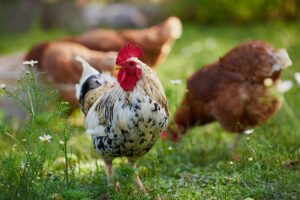Regenerative agriculture is agriculture whose main goal is to restore and maintain the yield potential of the soil (and agroecosystems) by conducting agricultural production that does not harm the natural environment. Regenerative agriculture is characterized by a negative carbon footprint (Carbon Negative Agriculture) reducing CO2.
Regenerative agriculture improves soil, delivers high productivity and high-quality food and helps fight climate change and restore lost biodiversity. Regenerative agriculture uses a number of assumptions from the integrated and ecological farming system, permaculture (self-regulating agricultural systems modeled on natural ecosystems) and precision agriculture.



